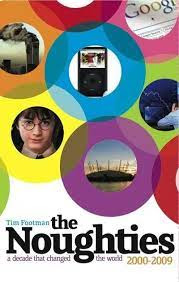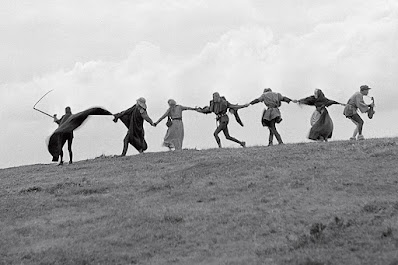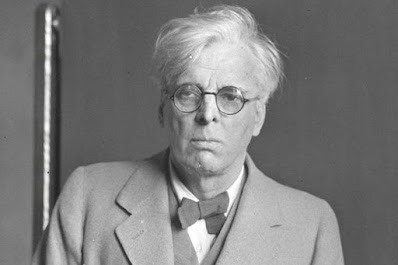In 2009,
I wrote a book about the decade that was then stumbling towards its demise. Inevitably it was going to be imperfect; not only did I have little more than 200 pages to tell the story, but I needed to deliver the manuscript about six months before the story ended. And, just as importantly, I was a white, educated-ish, straight male (also cis but I‘m not sure that concept would have even resonated then) in his early 40s, who’d never been south of the equator. The narrative was necessarily partial, in both senses of the word.
That said, I don’t think the story I told about the period was too far off. I argued that we’d been so fixated on the symbolic turning-point of the millennium that we’d never bothered to decide what the decade was going to be called. (“Noughties” was a best guess and plenty of people didn’t get the memo.) And, despite the historian’s desire to package stretches of time into next units that corresponded with the calendar (what Ferdinand Mount called “decaditis”), real life rarely obliges. I suggested that the 1990s, the decade of Fukuyama’s liberal triumphalism when history supposedly ended, spilled over until September 2001; and the truncated decade came to an end when Lehman Brothers did, two collapses, just seven years and a few New York blocks apart. Fear and technology were the two themes that permeated the period and the meeting of the two created a characteristic sense of twitchy unease: should I be more worried about a terrorist attack, or about the CCTV camera that’s meant to prevent it? What was really lacking was a single image that encapsulated our (received) memory of what the decade was like, to compare with the dedicated followers going through the racks in Carnaby Street, punks striding across the King’s Road, a besuited yuppy on a slab-like mobile phone.

I knew my utter wrongness would become clear eventually. What I wasn’t expecting was that it would take so long to happen; and certainly not that the catalyst would be a nest-haired narcissist called Russell Brand. Because of the laws of libel (and possibly a worry about prejudicing any subsequent legal proceedings) all we can say openly about the man himself is that he wasn’t very nice and we never found him funny or, if you’re a devotee of his second career as a hawker of conspiracy theories and associated quackeries, that it’s the New World Order/Rothschilds/Mainstream Media/Giant Lizards trying to gag the gallant speaker of truths blah blah blah.
Instead, the finger pointed at... the Noughties themselves. Endeavouring to contextualise Brand, Sarah Ditum characterises the decade as:
...a period of viciousness and excess, where cruelty was the norm and misogyny was celebrated... Lad culture, which had once seemed like a corrective to smothering Nineties niceness, flourished into a full backlash. Second-wave feminism had spent decades explaining why porn, objectification and rape jokes should be unacceptable. Now they came surging back, this time with a protective sheen of irony.
Others seem retrospectively baffled, even when they were right at the heart of the shenanigans, and presumably in a position to stamp out misbehavior; here’s Lorraine Heggessey, who was controller of BBC One at the time:
It's not actually that long ago. This was the 2000s, so let's not think it was the dim and distant past. It wasn't. I don't think it would be acceptable to say anything like that. I'm amazed that it was acceptable at that time frankly.
Obviously I’d completely missed all this in the book but I can console myself that pretty much everyone else did at the time. It’s taken nearly 14 years for that decade-defining image to make itself known; it‘ll be a clip of Russell Brand getting away with it (“it” being, if nothing else, a sort of non-specific nastiness, enabled by his gender and celebrity status), and the rest of us letting him.
PS: And while we’re talking about partial memories of a decade, this morning the Absolute 80s radio station heralded a day celebrating one-hit wonders with a tweet (or whatever we call them this week – Xpectoration?) depicting ‘Come On Eileen’ by Dexys Midnight Runners, a band that enjoyed seven more Top 20 singles in the decade. The usual suspects jumped in to point and laugh at the cock-up, but one brave soul asserted that his own limited awareness of the Dexys oeuvre trumped any silly ideas about empirical reality:









